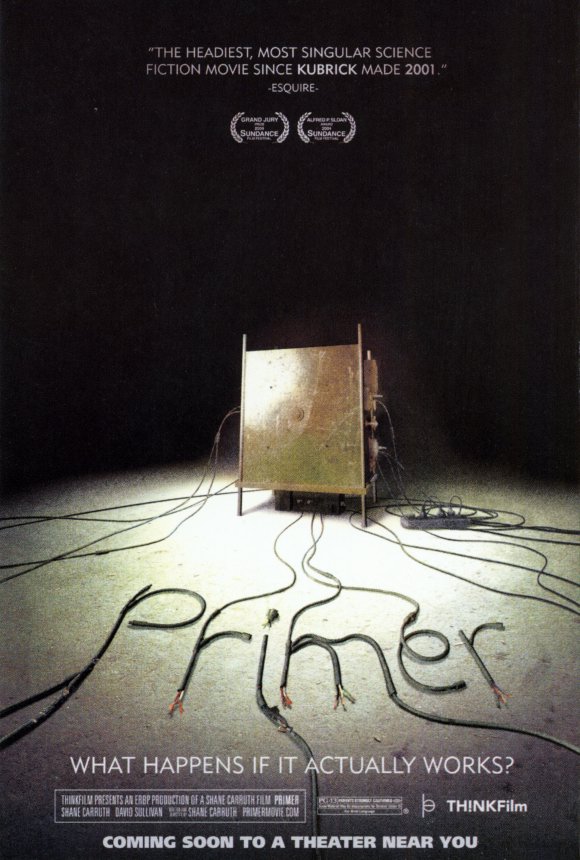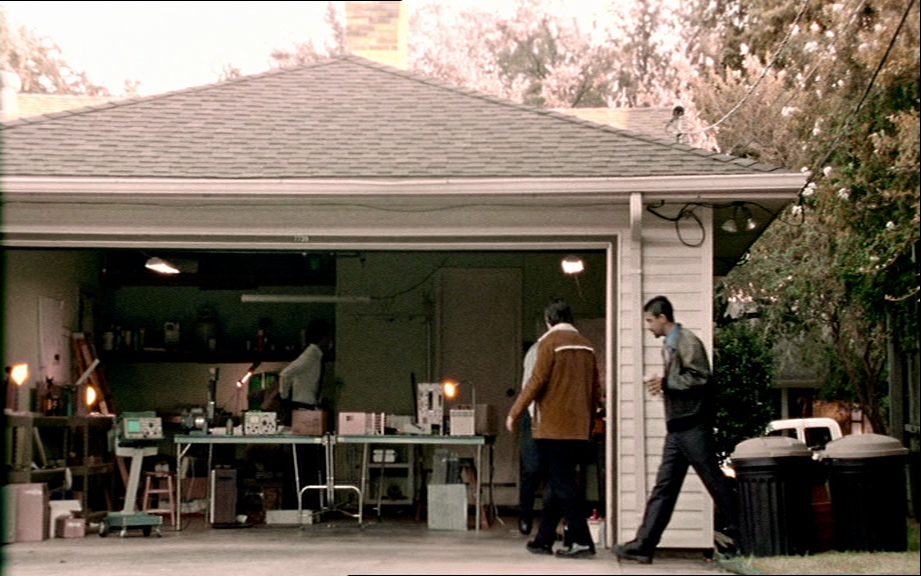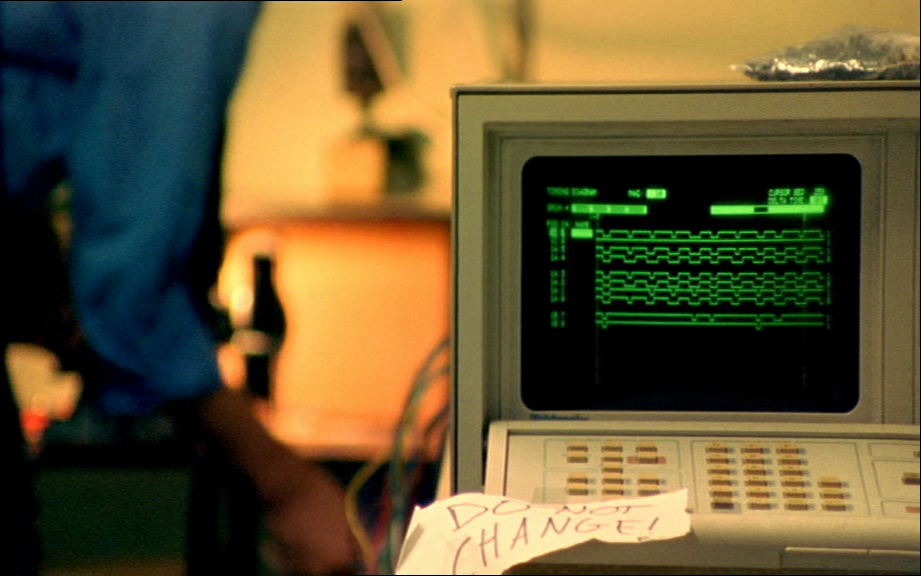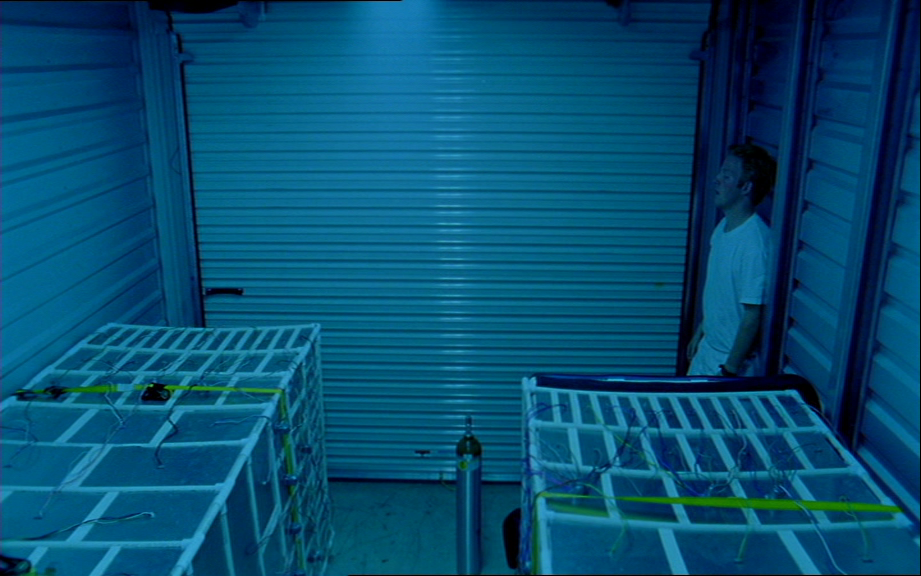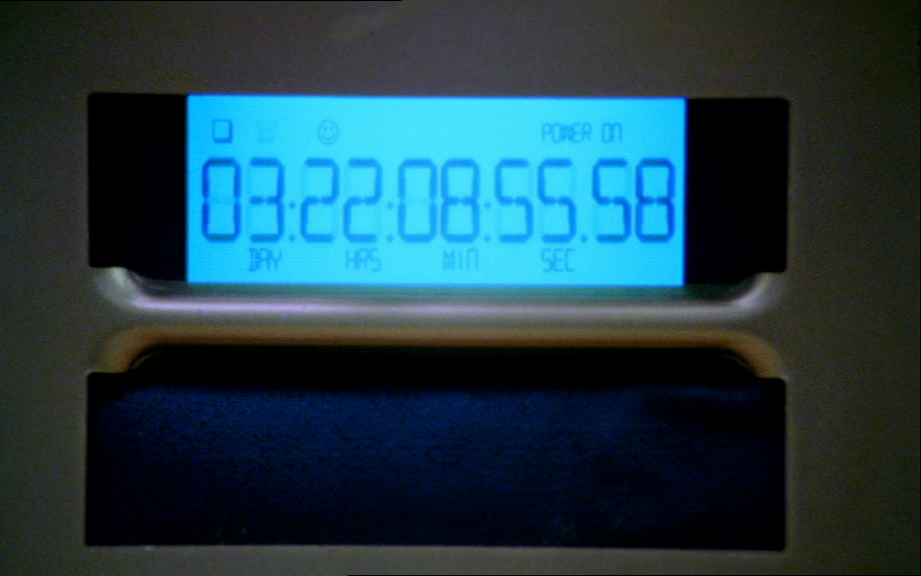-
#8 – Primer (2006)
Primer (2006)
Film review #8
dir. Shane Carruth
An independent film all about time travel. Two guys working on a range of bizarre inventions stumble upon the secret to manipulating time itself…
For an independent, low-budget movie, Primer should be noted for it’s very complex and technical plot. As each step in the development of this time travel experiment is discussed and laid out in the dialogue, it is obvious that there is a lot of technical thought that has been considered. Even when stepping into the scientific unknown of time travel, there is still a lot of technical background, which although works nicely within the context of the script, it may take scientific and mathematical liberties at some points, but with the sheer amount of technical information pouring out of the script, it is difficult to determine the real and fake science, which I would say work’s in the movie’s favour.
There is a real trash aesthetic throughout the film. Being an independent film about two guys working from their garage, this is probably what you should expect. The cobbled-together machines give no clue or framework for understanding what is going on, so it requires an attentive viewer to decipher how everything works.
As you can guess, it is pretty easy to get lost in this movie. If the techno-jargon doesn’t get you, the amount of different timelines that start piling up most certainly will. Just google search “primer timeline” and you’ll get a large number of graphs and charts which people have used to try and decipher the events of Primer. Interesting fact: I never heard the word “time” or “time travel” anywhere in the film.
If there is one clear message to take away from Primer, it is this: Time travel is messy. Just by doing one simple journey backwards in time throws up so many complications, and even with the precautions the main characters take to remove themselves from the continuum, everything still manages to pile up so much that they have to leave their old lives behind while another version of themselves goes on in their place.
It’s very much a Pandora’s box: Once you open it, you can’t really put it back. Perhaps the “time machine” (this definition is never used in the movie by the way) being in the shape of a box signifies this rather nicely.
So is it possible to answer the tag-line question: What happens if it actually works? Not in my opinion. What happens seems to be far out of the control of two guys working in their garage.
